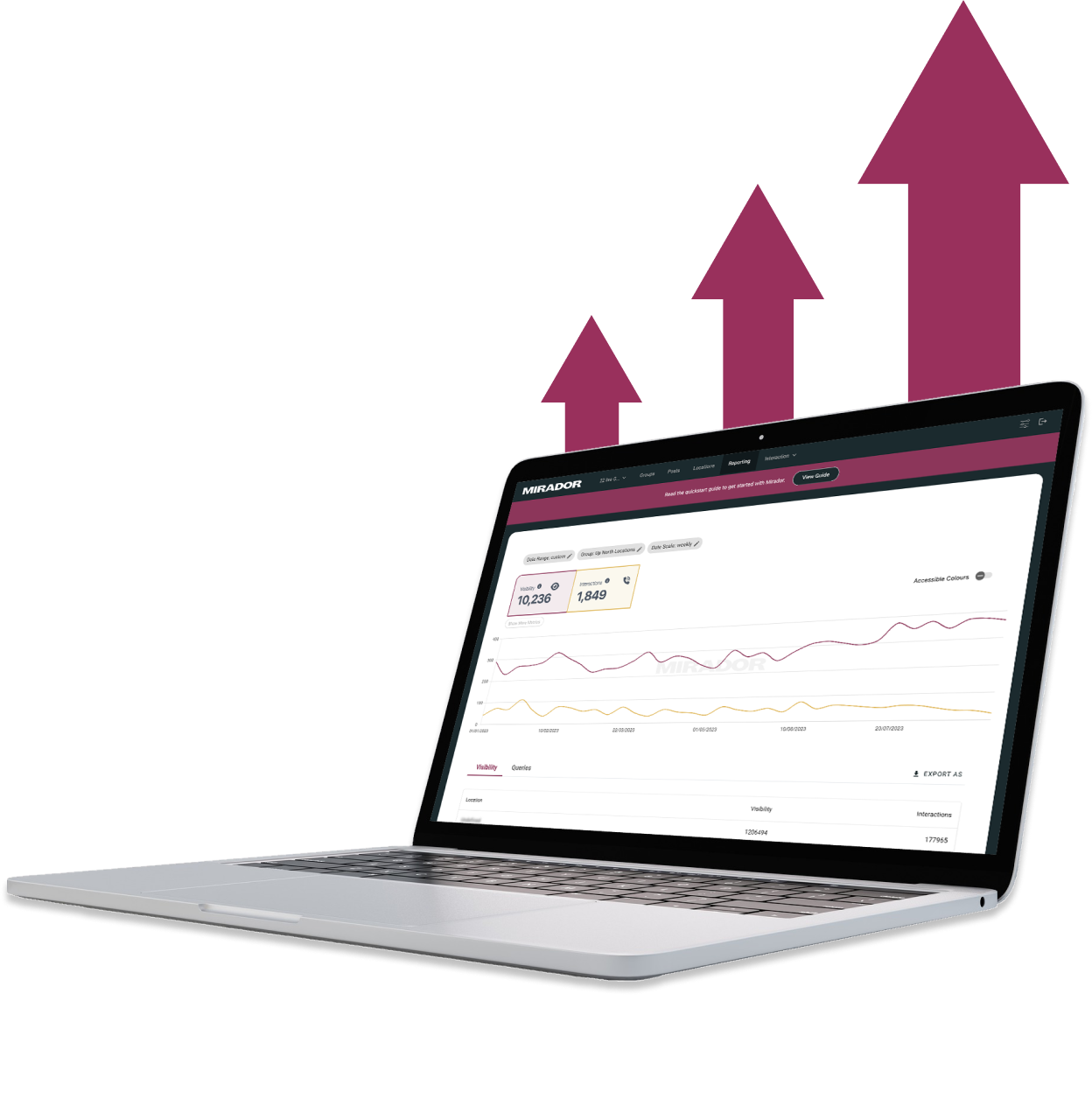Implementing Sliders in Webflow
Implementing Sliders in Webflow: A Comprehensive Guide
Understanding Webflow Sliders
Webflow is a popular website builder that allows users to create and customize websites without the need for coding. One of the many features that Webflow offers is the Slider component, which allows users to create a slideshow of images or other content on their website.
The Slider component in Webflow is a versatile tool that can be used to showcase images, products, or any other type of content that needs to be displayed in a slideshow format. The Slider component can be customized to fit the design and layout of any website and can be used in a variety of ways to enhance the user experience.
The anatomy of a Slider component in Webflow consists of several elements, including the slide navigation, slide content, and slide background. The slide navigation allows users to switch between slides in the slideshow, while the slide content is where the images or other content are displayed. The slide background is the area behind the slide content and can be customized to fit the design of the website.
To create a Slider component in Webflow, users can add the Slider component to their page and then add slides to the component. Slides can be added in several ways, including duplicating existing slides or adding new slides through the Element Settings Panel. Users can also add a collection list for each slide, which allows them to display dynamic content in the Slider component.
Overall, the Slider component in Webflow is a powerful tool that can be used to enhance the user experience on any website. With its customizable design and versatile functionality, the Slider component is an excellent addition to any website built on the Webflow platform.
Building Sliders in Webflow
Building sliders in Webflow is a straightforward process that can be done by anyone, regardless of coding experience. This section will guide you through the necessary steps to create a slider in Webflow.
Choosing a Template
Webflow provides several templates that you can use as a starting point for building your slider. You can find these templates in the Elements panel under the Sliders category. You can drag and drop a template onto your page to get started.
Adding Slides
Once you have chosen a template, you can add slides to your slider. To do this, you can either duplicate the existing slide or create a new one. You can add as many slides as you need, and you can customize each slide individually.
To add a new slide, you can click on the plus icon in the Slides panel. You can then customize the slide by adding images, text, and other elements.
Customizing Arrow Icons
Webflow provides default arrow icons for your slider, but you can replace them with your own icons if you prefer. To do this, you can select the arrow element in the Slider panel and replace the default icon with your own.
You can also customize the color and size of the arrow icons to match your design. To do this, you can select the arrow element and use the Style panel to make the necessary changes.
In conclusion, building sliders in Webflow is a simple process that can be done using templates and customization options provided by the platform. By adding slides and customizing arrow icons, you can create a slider that matches your design and meets your needs.
Working with Content in Sliders
When it comes to creating sliders in Webflow, one of the most important aspects is adding content to each slide. This section will cover how to add and customize different types of content in sliders, including images, text, and dynamic content.
Using Images
Adding images to slides is a great way to make your slider more visually engaging. To add an image to a slide, simply drag and drop an image element onto the slide. From there, you can adjust the size and position of the image as needed.
Webflow also provides several options for customizing how images are displayed in sliders. For example, you can set images to fill the slide, fit the slide, or be displayed at their original size. You can also add background images to slides, which can be a great way to create more complex visual designs.
Adding Text
In addition to images, you can also add text to slides in Webflow sliders. To add text, simply drag and drop a text element onto the slide. From there, you can customize the font, size, color, and other properties of the text.
Webflow also provides options for adding text overlays to images in sliders. This can be a great way to add more context or information to your slider designs. To add a text overlay, simply add a text element on top of an image element and adjust the properties as needed.
Implementing Dynamic Content
Webflow sliders also support dynamic content, which means that you can populate slides with content from a collection or CMS. This can be a great way to create more complex sliders that showcase articles, products, or other types of content.
To implement dynamic content in a slider, you'll need to create a collection or CMS and then connect it to the slider. From there, you can use collection lists and dynamic embeds to populate slides with content from the collection.
Overall, working with content in Webflow sliders is a straightforward process that provides a lot of flexibility and customization options. Whether you're adding images, text, or dynamic content, Webflow provides the tools you need to create engaging and visually appealing sliders.
Customizing Slider Navigation
Webflow sliders have a built-in navigation system that allows users to easily navigate through the slides. However, this navigation system may not always fit the design needs of a project. Fortunately, Webflow provides users with the ability to customize the slider navigation to better fit their needs.
Styling the Slide Nav Dots
The slide nav dots are the small circles that appear below the slider to indicate which slide is currently being viewed. These dots can be styled to better fit the design of a project. Users can change the color, size, and shape of the dots to better match the overall design.
To style the slide nav dots, users can select the slider element and navigate to the "Slider Nav" section in the settings panel. Here, users can adjust the color, size, and shape of the dots using the available options.
Hiding Slide Elements
In some cases, users may want to hide certain slide elements, such as the slide nav dots or the left and right arrows. This can be done by selecting the slider element and navigating to the "Slider Nav" section in the settings panel.
To hide the slide nav dots, users can toggle the "Show Nav Dots" option to off. To hide the left and right arrows, users can toggle the "Show Prev/Next Arrows" option to off.
Using Keyboard for Navigation
Users can also navigate through the slider using their keyboard. By default, users can use the left and right arrow keys to navigate through the slides. However, this can be customized to better fit the needs of a project.
To customize the keyboard navigation, users can select the slider element and navigate to the "Slider Nav" section in the settings panel. Here, users can adjust the keyboard navigation settings using the available options.
In conclusion, customizing the slider navigation in Webflow can help users better fit the design needs of their project. By styling the slide nav dots, hiding slide elements, and customizing keyboard navigation, users can create a more seamless and intuitive user experience.
Implementing CMS in Sliders
Sliders are a popular way to display content on a website, and Webflow makes it easy to create and customize sliders using their built-in slider element. However, if you want to display dynamic content in your slider, such as blog posts or products, you'll need to use Webflow's CMS system. In this section, we'll explore how to implement CMS in sliders in Webflow.
Using CMS System
To use CMS in your slider, you'll first need to create a collection in Webflow. A collection is a group of items that share the same fields, such as blog posts or products. Once you've created your collection, you can add items to it and customize the fields for each item.
Next, you'll need to add a collection list to your slider. A collection list is a dynamic element that displays a list of items from your collection. You can customize the layout of your collection list to display the fields you want, such as the title and image of each item.
Finally, you'll need to connect your collection list to your slider. To do this, you'll need to select your collection list and go to the settings panel. Under the "Collection" tab, select your collection from the dropdown menu. You can also customize the sorting and filtering of your collection list to display the items you want.
Working with Collection Lists
Once you've connected your collection list to your slider, you can start customizing the design and functionality of your slider. You can add interactions to your slider to create animations and transitions between slides, and you can customize the navigation and pagination of your slider.
One important thing to keep in mind when working with collection lists in sliders is that each slide in your slider will display one item from your collection list. This means that if you want to display multiple items in your slider, you'll need to add multiple slides to your slider and connect each slide to a different item in your collection list.
Overall, implementing CMS in sliders in Webflow is a powerful way to display dynamic content on your website. By using collection lists and connecting them to your slider, you can create a customized and dynamic slider that displays the content you want.
Enhancing User Experience with Sliders
Sliders are a powerful tool for enhancing user experience on a website, and they are especially effective when it comes to showcasing visual content. Here are some tips for optimizing your sliders in Webflow to provide the best user experience possible.
Optimizing for Mobile
With more and more users accessing websites on their mobile devices, it's important to optimize your sliders for mobile. One way to do this is by using responsive design, which allows your sliders to adjust to different screen sizes. You can also use touch-friendly controls, such as swipe gestures, to make it easier for users to interact with your sliders on mobile devices.
Applying Easing Methods
Easing methods are a way to control the speed and flow of your slider animations. They can help make your sliders feel more natural and intuitive, and they can also help draw attention to specific parts of your content. Some common easing methods include linear, ease-in, ease-out, and ease-in-out. Experiment with different easing methods to find the one that works best for your content.
Setting Duration
The duration of your slider animations can have a big impact on user experience. If your animations are too short, users may not have enough time to process the content. On the other hand, if your animations are too long, users may become bored or frustrated. Aim for a duration that feels natural and engaging, and consider using different durations for different types of content.
By following these tips, you can create sliders that provide an engaging and intuitive user experience. Whether you're showcasing images, videos, or other types of content, sliders can be a powerful tool for drawing attention and keeping users engaged.
Advanced Slider Features
Webflow's slider component offers various advanced features that allow you to create dynamic and interactive sliders for your website. In this section, we will discuss some of the advanced slider features that can help you create engaging and visually appealing slideshows.
Creating Carousel Sliders
Carousel sliders are a popular type of slider that allows users to scroll through multiple slides horizontally. In Webflow, you can create a carousel slider by selecting the "Carousel" option in the slider settings. This will enable the carousel mode and allow users to navigate through multiple slides by clicking the navigation arrows or swiping left or right.
To make your carousel slider more engaging, you can also add control elements such as pagination or thumbnails. Pagination allows users to see how many slides are in the carousel and which slide they are currently viewing. Thumbnails, on the other hand, show a miniature version of each slide and allow users to navigate directly to a specific slide.
Using Swipe Gestures
Webflow's slider component also supports swipe gestures, which allow users to navigate through slides by swiping left or right on touch-enabled devices. To enable swipe gestures, simply select the "Swipe gestures" option in the slider settings. This feature can significantly improve the user experience on mobile devices and make your slider more interactive.
Implementing Autoplay
Autoplay is another useful feature that allows your slider to automatically play through slides without user input. In Webflow, you can enable autoplay by selecting the "Autoplay" option in the slider settings. You can also customize the autoplay delay and set it to play only once or loop continuously.
Autoplay can be particularly useful for creating product showcases or image galleries, where you want users to see all the slides without having to manually navigate through them.
Working with Multiple Slides
Webflow's slider component also allows you to work with multiple slides, which can help you create more complex and dynamic sliders. To add multiple slides to your slider, simply duplicate the slide element and customize the content and design for each slide.
You can also use the "Slide settings" panel to customize the transition effect, duration, and delay for each slide. This can help you create more engaging and visually appealing transitions between slides.
Overall, Webflow's slider component offers a wide range of advanced features that can help you create dynamic and interactive sliders for your website. By using these features, you can create engaging and visually appealing slideshows that will capture your users' attention and improve their overall experience on your website.
Troubleshooting Common Slider Issues
Webflow's slider component is a powerful tool for creating dynamic and engaging content on your website. However, like any feature, it can sometimes encounter issues that can be frustrating to troubleshoot. Here are a few common issues that users may encounter when working with sliders in Webflow, along with some tips for addressing them.
Addressing Breakpoints
One issue that users may encounter when working with sliders in Webflow is that they may not display properly on certain device sizes. This can be caused by a variety of factors, including incorrect breakpoint settings or issues with the slider's layout.
To address this issue, users should first check that their breakpoint settings are correctly configured. This can be done by navigating to the "Breakpoints" tab in the Webflow Designer and ensuring that each breakpoint is set up to display the slider properly.
If the issue persists, users may need to adjust the slider's layout to ensure that it displays correctly on all device sizes. This can be done by adjusting the slider's width and height settings, as well as its positioning and alignment settings.
Handling Cloning Issues
Another issue that users may encounter when working with sliders in Webflow is that they may not clone properly. This can be caused by a variety of factors, including issues with the slider's interactions or settings.
To address this issue, users should first check that their slider's settings and interactions are correctly configured. This can be done by navigating to the "Settings" and "Interactions" tabs in the Webflow Designer and ensuring that each setting is correctly configured.
If the issue persists, users may need to try a workaround such as copying and pasting the slider into a new project or rebuilding the slider from scratch. This can help to ensure that the slider is properly configured and functioning as intended.
Overall, troubleshooting common slider issues in Webflow can be a challenging but rewarding process. By following these tips and best practices, users can ensure that their sliders are functioning properly and providing a seamless user experience for their website visitors.
Get started⚡
Supercharge your webflow website
- 🖥️ Unlimited Webflow Development
- 🛠️ Unlimited Tasks (1 active)
- ⏰ 2-3 Day Turnaround
- 📞 Bi-Weekly Calls
- 🤝 Dashboard & Slack Collaboration
- 🔄 Cancel/Pause Anytime
- 🎨 Webflow Dev + Figma Design
- 🛠️ Unlimited Tasks & Projects (1 active)
- ⏰ 1-3 Day Turnaround
- 📞 Bi-Weekly Calls
- 🤝 Dashboard & Slack Collaboration
- 🔄 Cancel/Pause Anytime
10% OFF
£9.45k billed quarterly
- 🖥️ Unlimited Webflow Development
- 🛠️ Unlimited Tasks (1 active)
- ⏰ 2-3 Day Turnaround
- 📞 Bi-Weekly Calls
- 🤝 Dashboard & Slack Collaboration
- 🔄 Cancel/Pause Anytime
10% OFF
£10.8k billed quarterly
- 🎨 Webflow Dev + Figma Design
- 🛠️ Unlimited Tasks & Projects (1 active)
- ⏰ 1-3 Day Turnaround
- 📞 Bi-Weekly Calls
- 🤝 Dashboard & Slack Collaboration
- 🔄 Cancel/Pause Anytime
- 💸 Competitive pricing
- 📉 More hours = lower price
- 🎨 Design and development
- 📊 Updates via our dashboard

Thanks to Hilvy's expertise and hard work, Mirador Local now has a modern, user-friendly website that perfectly reflects our brand and enhances the overall user experience. I highly recommend them to anyone seeking a talented and reliable designer for their next project."

Gerry White
Global Growth @ Mirador

He really knows the ins and outs of Webflow - it's no wonder that he's a certified Webflow Expert! I'm looking forward to the day when I get to work with him again.

Diana Donaldson
CEO, Be Indigo
-p-500.png)
My website continually evolves to meet the demands of my clients and my offerings, which is fantastic. Hilvy also brings fresh ideas and insights on how to enhance and grow in alignment with my objectives and business requirements. I'm excited to see how this new phase unfolds."

Karin Young
Psychotherapist, Karin Counselling

They also remained really patient with us throughout and gave us great advice on how to set ourselves up for the long term, and then also gave us some valuable training on Webflow, upskilling our team. We had a clear way of providing changes and feedback via a tool he suggested which worked really well, the process was smooth. If you're a start up or scale up looking for an excellent web developer to turn your ideas into reality, look no further!!"

Ben Leftley
Senior Delivery Manager at Unmind
Their excellent blend of technical and visual knowledge helped us create a fast, SEO-optimized site that looks fantastic and stays true to our brand. We would gladly hire Hilvy again!"

Eliza Gerland
Strategic Marketer @ UFODrive
Throughout the process, they patiently addressed all questions that arose during our platform transition, delivering not only an exceptional site but also tutorials on managing it."

Their design expertise is outstanding, and they were able to craft a bespoke, feature-rich website that looks fantastic and functions seamlessly. I wholeheartedly recommend Hilvy to anyone seeking webflow designers who truly understand their craft!"

Taita Ngetich
CEO @ Synnefa


Miles Owen
Their Webflow development expertise is top-notch, and they effortlessly keep up with the dynamic nature of early-stage startups."

Growth at Briink


Marketing Lead @ Provenance




%201.svg)











